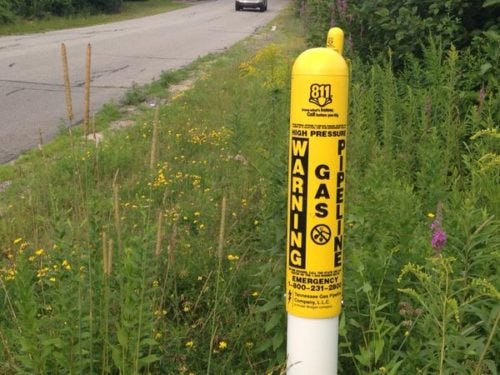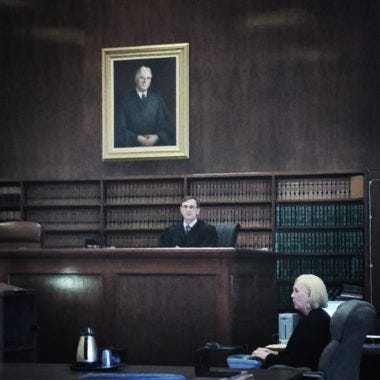Pipelines, PCBs- Environmental Threats to the 413
Western Massachusetts’ Berkshire County is facing twin environmental threats that, despite their seeming differences, may affect one another in future litigation.
First, there’s the Connecticut Expansion Project (CEP). The four mile natural gas pipeline extension aims to project into state protected land in the Otis State Forest in the town of Sandisfield.
Pipeline operator Kinder Morgan and the Commonwealth of Massachusetts went to court over the issue in April, with the arguments centered around the rights of Massachusetts versus the supremacy of the federal government.
One question was clear: Can a state’s Constitution have more power than a federal regulatory agency?
That question lies at the center of ongoing litigation over the pipeline.
Meanwhile, international corporation G.E., which has a long and complicated history with the Berkshires, is under EPA order to dredge Berkshire County’s Housatonic River of the PCB infected soil its plant in county seat Pittsfield left in the waterway. As I wrote in The Berkshire Record in early May:
GE’s plant in Pittsfield, which closed in the early 1990s, was the source of the PCBs and contaminated soil. The company provided poisoned fill for bends in the river, and even used contaminated soil for a Pittsfield playground. Since the consequences of these activities have been made clear, GE has fought tooth and nail to avoid any fiduciary or legal responsibility for the pollutants……
The company wants to dredge the river and then place the removed soil right beside the riverbeds from where it was removed. The landfills will be located in Lee, Lenox, and the village of Housatonic in Great Barrington. This will not only make any clean up somewhat irrelevant (PCBs will leach back into the water), it will contaminate more of the surrounding area as a result.
So- what do these two different environmental battles have to do with one another? The answer is found in the principle at issue in the CEP case.
In that case, Berkshire Superior Court Judge John Agostino has ruled that the state cannot stop the pipeline from being built as it would mark the state being given supremacy over the federal government.
From Agostino’s ruling:
The Supremacy Clause is about allocating power between the federal and state governments with preemption the glue that ties the sates together in a federation. What is particularly troubling about the Commonwealth’s argument is the ease at which a state has the ability to stop a federal interstate project, be it a pipeline, highway, telecom network or electrical transmission lines by simply invoking a state constitutional provision geared to protect the environment. If accepted by the app courts, other states would be well advised to adopt this road to confederation, particularly those states that have expressed a less than harmonious relationship with Washington.
In other words, should the Commonwealth be allowed to supersede the authority of the federal government on this project, there’s nothing to stop that precedent being used against other federally mandated projects in the future.
Such as the PCB clean up.
GE currently has the eastern end of the state, where the population centers, money, and power are located, under its thumb as it flirts with returning to MA. Could this mean that, if the CEP decision falls in favor of the Commonwealth, the EPA’s order could be rejected by the legislature in order to establish better ties between MA and the company?
Maybe.
For more on the subject, and Berkshire County environmental news, check out my appearance on “For the Record” from last week:





